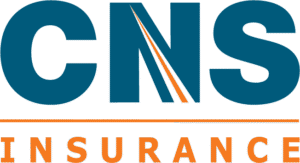Filing an insurance claim after a commercial truck accident or loss should bring peace of mind—not more stress. But for many small to mid-sized fleets, getting a claim denied can be a frustrating and costly surprise.
At CNS Insurance, we regularly help clients through the claim process and have seen firsthand the most common reasons why truck insurance claims are denied.
Below, we break them down and provide real-world examples, plus tips to help your team avoid costly mistakes.
Top Reasons Truck Insurance Claims Get Denied
1. Incomplete or Inaccurate Documentation
The Problem: Insurers rely on detailed documentation to verify facts, establish fault, and determine claim eligibility. Missing or inconsistent records can lead to delays—or denials.
Example:
A fleet submitted a claim for a rear-end collision caused by another vehicle, but the driver failed to collect a police report and didn’t take photos at the scene. Without supporting evidence, the insurer questioned fault and denied the claim.
How to Avoid It:
- Train drivers to follow post-accident protocols: photos, third-party details, witness names, and police reports.
- Use an accident checklist in your driver app or safety binder.
- Submit the claim with supporting documents within 24–48 hours.
2. Lapsed or Incorrect Policy Details
The Problem: Claims can be denied if your policy doesn’t match what’s actually happening in your operation (e.g., type of freight, vehicle usage, garaging location, or driver details).
Example:
A small reefer fleet submitted a claim for spoiled goods due to a refrigeration unit failure. The policy didn’t include reefer breakdown coverage—just standard cargo insurance. The result? Full denial of the cargo claim.
How to Avoid It:
- Update your insurance broker immediately when your operation changes.
- Review your policy at least once per quarter with your agent.
- Ensure all drivers listed are qualified and active under your current policy.
3. Poor or Missing Maintenance Records
The Problem: If a mechanical issue contributed to the accident, insurers may request proof of regular maintenance. Without it, they may claim negligence and deny the claim.
Example:
A truck caught fire due to an electrical issue traced back to corroded wiring. The fleet had no documentation of recent inspections, repairs, or PM logs. The insurance company declined the claim citing preventable maintenance failure.
How to Avoid It:
- Maintain a digital trail of all inspections, repairs, and preventive maintenance (e.g., oil changes, brake checks).
- Use fleet management software or a simple shared spreadsheet for tracking.
- Require mechanics to document services with dates and work performed.
4. Unqualified or Unreported Drivers
The Problem: If a driver involved in an accident isn’t listed on your insurance policy—or doesn’t meet FMCSA driver qualifications—your insurer could deny the claim.
Example:
A medium-sized fleet let a new CDL driver take a load without confirming he was added to the policy. When that driver caused a minor rollover, the claim was denied because the driver wasn’t on file.
How to Avoid It:
- Implement a driver onboarding checklist that includes insurance approval before dispatch.
- Work with your broker to pre-qualify drivers and get approval within 24 hours.
- Keep MVRs and driver files updated and compliant. Let CNS help manage this for you!
5. Failure to Report a Claim Promptly
The Problem: Most policies have a tight window for filing claims. If you wait too long, insurers can—and often do—deny claims based on late reporting.
Example:
A fleet reported a trailer theft three weeks after it happened, citing a delay in noticing it was missing. Because the incident wasn’t reported within the insurer’s required 7-day window, the claim was rejected.
How to Avoid It:
- Educate your team to report any incidents immediately—no matter how minor they seem.
- Assign a safety or office manager to assist in submitting claims quickly and accurately.
- Add insurance contact info and claim checklists to your driver’s handbook and dispatch portal.
Best Practices for Small to Mid-Sized Fleets
- Work with an industry-specific broker like CNS Insurance. General insurance agents may not understand FMCSA rules or commercial trucking needs.
- Use telematics and dash cams. These tools provide evidence that protects your drivers and strengthens claims.
- Create a claims response plan. Assign roles (driver, dispatcher, manager) and steps to take immediately after an incident.
- Bundle risk management with insurance. Many carriers offer discounts for fleets with proactive safety, maintenance, and hiring practices.
CNS Insurance Can Help
At CNS Insurance, we understand trucking. We help fleets build risk management programs that reduce claim denials, lower premiums, and protect your business from the unexpected.
By staying proactive and aligning your insurance with your new state’s requirements, you can keep your business running smoothly while ensuring your assets are protected. Transitioning doesn’t have to be stressful—partner with CNS Insurance and move forward with confidence.
If you have any questions or concerns, please call us at 800.724.5523 or email info@cnsinsures.com.




